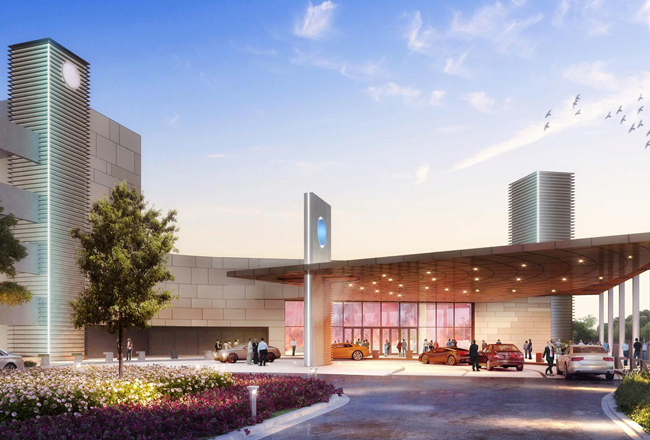Lamont to tribes: Drop East Windsor casino for Bridgeport, Hartford deals

The road to the future of Connecticut”™s gaming industry took a new detour as Gov. Ned Lamont has reportedly urged the Mashantucket Pequot and Mohegan tribes to jettison their plans for the Tribal Winds casino in East Windsor in favor of new projects in Bridgeport and Hartford.
According to a Hartford Courant report that cited an unnamed “source close to the negotiations,” Lamont”™s plan would include the sale of the financially ailing XL Center in Hartford to the tribes, who would renovate the arena and add casino gambling to its features. Built in 1975, the XL Center is run by the Capital Region Development Authority, which has been unable to sell the facility to a third party and failed to secure its request for $100 million in improvements during the recent legislative session.
Lamont”™s plan would also allow the tribes to have the exclusive right to Connecticut-based internet betting and would approve the construction of a tribal casino in Bridgeport. The latter is a reversal of Lamont”™s earlier efforts to have the tribes work out an equitable solution with MGM Resorts International, which announced its own proposal for a casino resort in Bridgeport.
The MGM Resorts proposal also included the creation of a workforce development and training program in New Haven for future casino employees, but the Lamont proposal does not include a New Haven component.
The tribes initially raised the possibility of a Bridgeport casino in 2015 as part of a three-site proposal that included a then-unnamed location in north central Connecticut and a location in the Danbury area. The tribes revisited the Bridgeport proposal in December 2017 after MGM Resorts began promoting its casino plan for the city.
MGM Resorts has threatened to pursue litigation to prevent the opening of an East Windsor casino on the grounds that the state did not conduct an open process to choose the facility”™s operating entity. The company operates a $1 billion casino across the state border in Springfield, which has not met its projected revenue levels. However, the Hartford Courant report cited unnamed sources that claim MGM Resorts would not pursue litigation if the East Windsor casino plan was terminated.
The tribes have spent $20 million in the planning and design of the $300 million Tribal Winds and engaged in a two-year fight with the U.S. Department of the Interior to gain federal approval for the project. The department granted its approval in March; the tribes announced the project could be completed by early 2021, creating 5,000 jobs during its construction and at least 2,000 permanent jobs after its completion.
The termination of Tribal Winds would be a financial blow to East Windsor and the surrounding area. In May, East Windsor First Selectman Robert Maynard, a Republican, told WTNH that the town could receive approximately $8.5 million per year from property taxes and an agreement made with the tribes, while six of the surrounding towns would divide $750,000 per year from the project.
“Nothing”™s happened here in a long period of time and now it”™s going to happen, so we”™re pretty excited by it,” said Maynard, whose office has not publicly commented on the Lamont plan.
The Lamont proposal comes a week after the introduction of the bipartisan Connecticut Jobs and Revenue Act, which would enable the tribes to build a Bridgeport casino, conduct internet betting and build the Tribal Winds venue. Both the CJRA, crafted without input from the governor, and Lamont’s reported plan would need approval by the state legislature.
Rodney Butler, tribal chairman of the Mashantucket Pequots, acknowledged the Lamont proposal but offered no clue on whether it had any traction.
“We”™re looking at a global solution ”“ looking at sports betting, online gaming, extended liquor hours, casinos in Bridgeport, casinos in Hartford, and we”™re trying to wrap it all into one conversation,”’ Butler said. “It”™s complicated.”